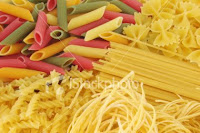Well here is my last say on fatty acids, at least for now.
 So where else can you get your essential fatty acids from? (Remember those of you who do not eat well, who are on a few medications (especially any reflux med), over 50, and highly stressed may have to supplement in order to get the correct amount of fatty acids.
So where else can you get your essential fatty acids from? (Remember those of you who do not eat well, who are on a few medications (especially any reflux med), over 50, and highly stressed may have to supplement in order to get the correct amount of fatty acids.Wild fatty cold water fish is the best source. Salmon is the best, followed by herring, sardines, mackerel, tuna, bluefish, cod, flounder, shrimp, or krill (a shrimp-like fish although usually found in supplemental form). You certainly can supplement with quality fish oil (tested for purity and Mercury levels) like Nordic Naturals, Carlson Labs or Spectrum if you can’t tolerate eating fish. High quality flax oil is high in fatty acids (the seeds are mostly fiber so it is not recommended as the best way to obtain sufficient amounts of the oil). You can take flax in its real oil form or purchase in capsules. Make sure you keep it refrigerated, oil and/or seeds, as it renders it rancid and useless and maybe even harmful).
Other good sources include walnuts, almonds, other nuts, dark green leafy vegetables, greens, lean meats grass fed), and eggs (cage free). Hemp is also gaining popularity as a good source of the 3’s.
For those who complain about “burping the oil up” after consumption, try freezing the capsules or get a formula that contains lipase (a fat enzyme for its digestion; DO NOT take if you have ulcers) to help you digest it better.














